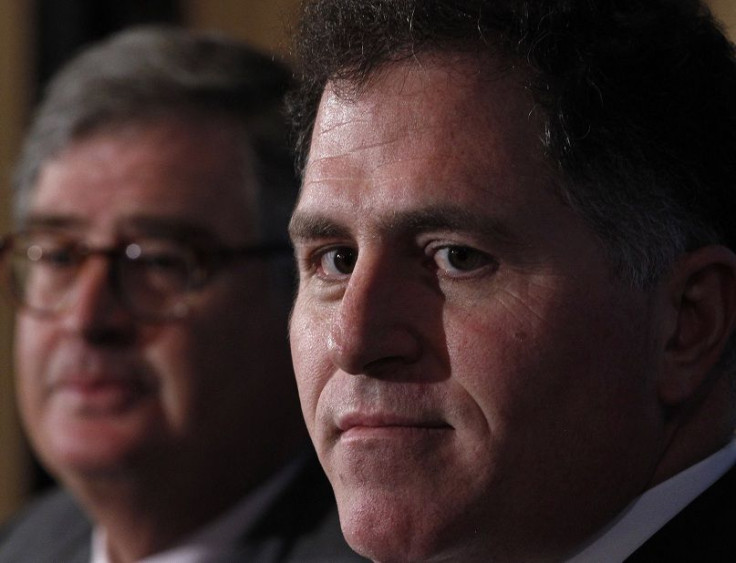For $24.4B, Who Else Might Want To Take Over Dell?

Dell Inc. (NASDAQ:DELL), the No. 3 PC maker, has agreed to be acquired in a $24.4 billion leveraged buyout managed by Silver Lake Partners. The deal is the largest of its kind in the history of the technology sector, and it's the biggest buyout since the 2007 recession. But it includes a provision called “go shop,” which means a third party could bid more for the company.
As the 45-day clock starts ticking on the deal for the Round Rock, Tex.-based maker of PCs and servers and provider of storage products, software and services, is there another company that might step up to offer more (and withstand a likely counterbid)?
That’s not likely considering that Dell’s bread-and-butter business, PCs, is declining now.
But Dell has some other assets, especially its brand name and its hard-won reputation as a quality manufacturer and provider of good services.
Few large companies aside from giants such as Google Inc. (NASDAQ:GOOG), the No. 1 search engine, and Apple Inc. (NASDAQ:AAPL), the most valuable technology company, could cut a check for $25 billion or more based on cash and investments. It’s not likely either would be interested in Dell, anyway.
Google reported cash and investments exceeding $48 billion and Apple $137 billion, as of Dec. 31.
At one time, telecommunications companies headed by AT&T Inc. (NYSE:T), the No. 1 telecommunications carrier, bought into the computer sector because they saw a gold mine there. AT&T acquired NCR Corp. (NYSE:NCR) for $7.4 billion and renamed it AT&T Global Information Solutions in 1991, in an unhappy marriage that ended six years later.
Dell’s lead director, Alex Mandl, was AT&T's CEO in this period. His former company reported cash of only $4.87 billion as of Dec. 31, although it could easily finance the rest. Why a leading telecom provider whose business is thriving on smartphone and mobile services would want a PC maker and services company is another question.
A foreign PC maker, including Samsung Electronics Corp. (KRX:005930), a Dell supplier, or China’s Lenovo Group (PINK:LNVGY), the No. 1 PC maker, might be interested. Neither appears to have the cash, anyway. As well, the sale of such a company might raise eyebrows with regulators, although Dell comprises a major part of its presence abroad already.
Dell’s bigger domestic rival, Hewlett-Packard Co. (NYSE:HPQ), the No. 1 computer company, wouldn’t bid because that would counter CEO Meg Whitman’s strategy of focusing on services and software while keeping PCs as part of an all-in-one solution for enterprises seeking to buy everything, including printers, from HP.
Microsoft Corp. (NASDAQ:MSFT), the No. 1 software company, with cash and investments exceeding $68 billion, will lend $2 billion to the new Dell, allowing it get a better return than keeping it in cash, while working with a valued partner.
So the only likely counterbidders would appear to be other private equity companies, which have worked with Silver Lake on other deals including the $11.3 billion takeover of SunGard Data Systems and the $9.4 billion takeover of NXP Semiconductors (NASDAQ:NXPI).
These include Bain Capital, the leveraged buyout firm once headed by Mitt Romney, the 2012 Republican nominee for president; Kohlberg Kravis Roberts (NYSE:KKR); Blackstone Group (NYSE:BX), TPG, Providence Equity Partners and Goldman Sachs Equity Partners (NYSE:GS).
One or more of them might ally with a big technology player, such as a Cisco Systems Inc. (NASDAQ:CSCO), the No 1 provider of Internet products, or Oracle Corp. (NASDAQ:ORCL), the No. 1 database company, to counter the deal.
But it looks unlikely.
Dell shares rose 15 cents to close at $13.42 Tuesday trading, not much below the $13.65 offered in the buyout. That looks like an indicator the deal will proceed.
See Also:
© Copyright IBTimes 2024. All rights reserved.












